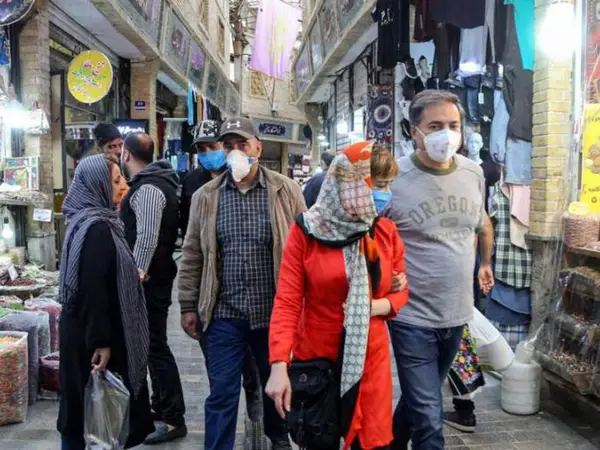An Iranian lawmaker has warned that reserves of essential commodities are running out and it would be very hard to replenish them given current circumstances.
"Our strategic reserves are finishing, and we won't be able to replenish them," Jalal Mahmoudzadeh, a member of the parliament's Agriculture Committee, told Shafaq News Agency on Friday.
According to Mahmoudzadeh, the war in Ukraine, the government's decision to scrap cheap dollars for importing essential commodities, and mismanagement are the three factors that will affect the availability and prices of essential goods.
Mahmoudzadeh predicted that prices of commodities such as sugar, oil, and rice in the Iranian market will rise considerably in the coming months due to the elimination of subsidies.
Iran decided to end a costly subsidy for importing food and animal feed recently, raising fears of rising prices in the new year that started on March 21. According to a report by ISNA on March 19, out of about $19 billion worth of basic goods imported in the past 12 months nearly $15 billion was subsidized with cheap dollars provided to importers.
Animal feed, much of the grains imported from Russia and Ukraine with cheap dollars until now would also become scarce and prices of red and white meat will therefore rise considerably, he said. Importers might be jittery about making commitments given the unpredictable foreign currency rates in Iran and government price fixing.
Last week it was announced that Iran’s agriculture minister, Javad Sadatinejad, had signed an agreement during a recent visit to Russia to import 20 million tons of basic goods, including vegetable oil, wheat, barley and corn. The report said the deal is to address concerns about shortages of basic goods and livestock feed in the coming months but did not mention the monetary value of the deal.
Iran is under US sanctions, but the government of President Ebrahim Raisi insists that it has succeeded in blocking their effect on the economy and neutralized the sanctions to a great extent. "The biggest achievement of the government in Vienna [nuclear] talks has been greatly reducing the strategic value of sanctions for the other side through the strategy of neutralizing sanctions," the official news agency (IRNA) wrote Friday.
Recent news about higher oil exports coincides with the most critical phase of indirect nuclear talks that the Biden Administration started with Iran almost a year ago. If talks fail, sanctions will continue.
Reuters reported on February 10 that daily illicit shipments of crude oil had surpassed one million barrels a day in the previous two months. This was the highest since May 2019 when the Trump administration imposed full sanctions on Iran’s oil exports.
Between May 2019 and late 2020, Iran’s clandestine oil exports hovered around 200,000 bpd, or 10 percent of its sales before Donald Trump withdrew from the Iran nuclear agreement, JCPOA, and imposed sanctions. The exports increased in 2021, but it is not clear how much cash revenues Iran receives, given the illicit nature of the shipments primarily going to China.
Oil exports may have increased but the government coffers appear to be still empty. The value of rial remains near its all-time lows at 260,000 to the US dollar, while liquidity keeps rising as the government prints more money.
Just before the Iranian New Year earlier this week, for the first time in over four decades, the Islamic Republic's government failed to make the monthly payments of millions of pensioners. Payments had regularly been made even during eight years of war with Iraq (1980-1988) under difficult conditions.
